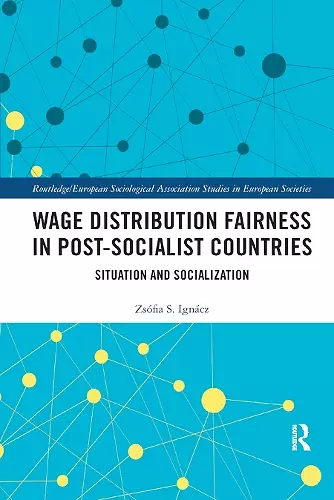Wage Distribution Fairness in Post-Socialist Countries
Situation and Socialization
Format:Paperback
Publisher:Taylor & Francis Ltd
Published:12th Dec '19
Currently unavailable, and unfortunately no date known when it will be back
This paperback is available in another edition too:
- Hardback£145.00(9781138222663)

Fairness of wage distribution – or the perception of such – is a phenomenon crucial for the stability of new democracies. While theories exist about how change of the political system trickles down to the attitudinal level, the systematic analysis of the effect of economic transition on public attitudes has been neglected to a large extent.
Wage Distribution Fairness in Post-Socialist Countries proposes a conceptual framework to measure the fairness of wage distribution. Indeed, looking particularly at wage distribution fairness in three post-socialist societies (Hungary, East Germany, Czech Republic) since the transition in 1989, this challenging monograph also aims to understand if, and to what extent, the experience of a socialist regime motivates individuals to consider wage distribution as fair.
Contributing to our understanding of the relevance of socialization and other situational factors influencing economic legitimacy, Wage Distribution Fairness in Post-Socialist Countries will appeal to undergraduate and postgraduate students, as well as postdoctoral researchers, interested in fields including: Sociology, Eastern European Studies and Political Economics.
This book offers a profound and comprehensive view on the legitimacy of the wage distribution system in the relevant and interesting settings of three post-socialist countries. It takes a novel approach in examining wage distribution fairness, by developing bi-dimensional justice profiles looking people’s evaluation of both wage rules and wage inequalities. Hereby Zsófia Ignácz contributes not only conceptually and empirically to our knowledge of the (sources of) fairness of an essential element of the economic system, but also inspires researchers to develop better conceptualizations of public opinion towards complex social phenomena. By focusing specifically on the role of socialization in wage distribution fairness, this book is definitely interesting for sociologists, and particularly those with an interest in social justice.
Femke Roosma PhD, Assistant Professor, Tilburg University, Netherlands
ISBN: 9780367884680
Dimensions: unknown
Weight: 530g
270 pages